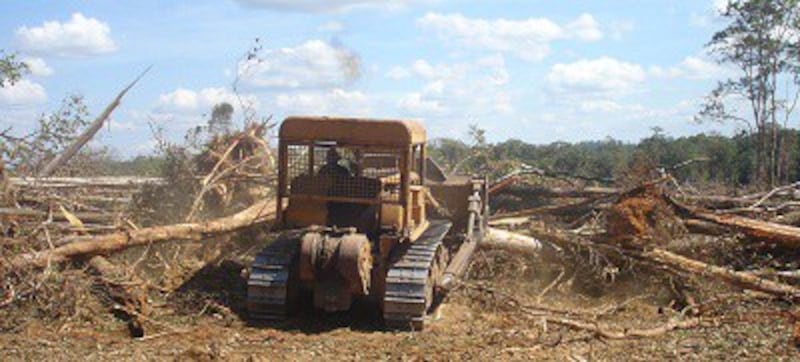Cambodian Prime Minister Hun Sen kicked up a storm by saying he forbids political parties and non-governmental organizations from intervening in land disputes but toned down his policy on Monday after his remarks drew a public outcry.
In a statement that baffled observers, Hun Sen said on Friday that his government would not work to resolve land disputes in which NGOs or political parties had become involved, warning residents locked in such disputes not to seek support from such groups.
For years, civil society and political groups have actively advocated on behalf of hundreds of thousands of villagers forced from their homes or threatened with forced eviction with little or no compensation.
Speaking at land-titling ceremony in Preah Vihear province on Friday, Hun Sen said that NGOs and political parties had worsened the country’s land problems by meddling in land conflicts.
Following a deluge of criticism, on Monday he said that the groups can help resolve land disputes as long as they are acting with good intentions and without political motives.
His comments at a groundbreaking ceremony for a bridge in Phnom Penh came as activists investigated the destruction of a community-owned protected forest in northeastern Cambodia’s Rattanakiri province.
Hun Sen categorized land disputes in which political parties or NGOs are involved as “political land disputes.”
He insisted that the groups should not be involved in addressing land disputes in the country, which have sparked violent conflicts between local residents and authorities.
“I forbid any political parties, including [my own ruling] Cambodian People’s Party, from using land disputes for political benefit,” he said, adding that land disputes cannot be resolved if political issues interfere.
“If a land dispute involves politics, even if we try until we die to resolve it, we still won’t be able to,” he said.
Outcry
But his earlier comments had already provoked an outcry from rights groups in the country.
Sia Phearum, director of the Housing Rights Task Force, said Hun Sen’s government should focus on resolving land disputes instead of accusing NGOs of interfering in them.
“As a country’s leader, he should be able to resolve the disputes, and the government should stop accusing other people,” he told RFA’s Khmer service.
He said NGOs do not work on land disputes for any political benefit and have played an important role in helping villagers with legal advice and advising them to avoid violent confrontation.
According to the rights watchdog Licadho, at least 400,000 people have been affected by land disputes over the past decade in just half of Cambodia’s provinces, mostly after land concessions were granted to private companies in their area.
Am Sam Ath, Licadho’s senior investigator, said that because no one else will listen, villagers embroiled in land disputes or forced off their land without compensation have no choice but to seek assistance from NGOs or opposition party lawmakers to bring their grievances to local authorities.
He added that NGOs were an effective channel to relay information from villagers to government institutions.
Political parties have taken up land disputes because the issues are important to their constituents and resolving them is key to avoiding a national crisis, opposition Sam Rainsy Party spokesman Yim Sovann said.
“I would be happy if the ruling party could resolve the land dispute without discrimination and without letting the issues become a national crisis,” he told RFA’s Khmer service.
The Cambodian Center for Human Rights said the prime minister’s warning was aimed at eroding support for the opposition ahead of next year’s general election.
“The message highlights the extent of the restrictions on human rights and freedoms of victims of land conflicts but also shows Hun Sen’s wish to control NGOs and to crush any political opposition,” the group’s spokesman Vann Sophath said in a statement Friday.

Community forest bulldozed
The outcry over Hun Sen’s comments came as rights groups investigated a land dispute in northern Rattanakiri province, where residents say the government has granted a concession to clear forest in what is supposed to be a protected area.
Local residents said some 30 hectares (74 acres) of their community-owned forest in Oyadaw district have been destroyed since a logging company was granted the concession.
The company was granted the license to clear the forest even though provincial authorities and the government had recognized the area as protected land belonging to the community, they said.
The company has been given a license to clear about 600 hectares (1,500 acres) of forest in the area and began clearing last week, community representative Sav Youn told RFA.
The company, Chea Chanrith, had deployed bulldozers and hired Vietnamese workers to clear the forest, local rights group Adhoc’s provincial coordinator Chay Thy said.
Rattanakiri Forestry Director Vong Sopeisei said the company had been licensed by the Ministry of Agriculture to clear land but said his staff is investigating the case.
Reported by RFA’s Khmer service. Translated by Samean Yun. Written in English by Rachel Vandenbrink.
